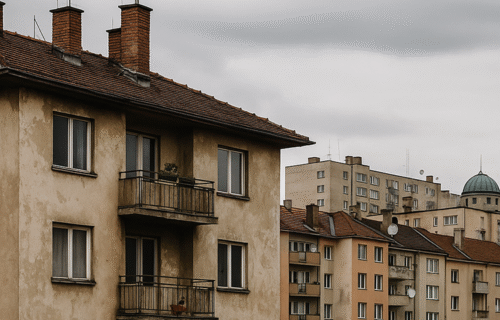The Organisation for Economic Co-operation and Development (OECD) has identified housing affordability as an escalating challenge in the Czech Republic, particularly impacting young families, seniors, and other vulnerable groups. In a report published in collaboration with the Czech Ministry for Regional Development (MMR), the OECD highlights rising property and rental prices, inadequate housing quality, and a substantial share of unoccupied apartments as key contributors to the issue.
From 2008 to 2024, property prices in the Czech Republic rose by over 30 percent, a rate slightly higher than the OECD average. Rental costs nearly doubled during the same period, according to estimates cited by OECD and supported by data from Deloitte, which found the average apartment price was 110,100 CZK per square meter late last year; rent rose from 309 to 316 CZK per square meter per month by early 2025 .
OECD analysis underscores that fragmented, short-term solutions are insufficient. It calls for a coordinated long-term strategy linking housing with urban policy, taxation, and social services. The report recommends supporting non-profit housing providers, defining “affordable” and “social” housing clearly in law, establishing sustainable financing mechanisms, and strengthening cooperation between municipalities and non-profits.
Barriers within urban planning are also identified as impediments. The OECD suggests streamlining approval processes, bolstering municipal incentives for housing development, and reforming property taxes to bolster local infrastructure and affordable housing funding.
The study offers a regional comparison, noting that Poland faces similar affordability constraints, with 12 percent of homes unoccupied. Moreover, demand in Poland has surged due to the influx of over 1 million Ukrainian refugees since 2022. The Czech Republic has seen about 581,000 Ukrainian residents by June 2025, representing more than half of its foreign population.
These trends underscore a growing risk of housing inequality that threatens social cohesion and economic stability unless systemic reforms are adopted.
